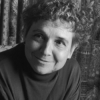Adrienne Rich

Adrienne Rich
Adrienne Cecile Richwas an American poet, essayist and radical feminist. She was called "one of the most widely read and influential poets of the second half of the 20th century", and was credited with bringing "the oppression of women and lesbians to the forefront of poetic discourse."...
NationalityAmerican
ProfessionPoet
Date of Birth16 May 1929
CityBaltimore, MD
CountryUnited States of America
Adrienne Rich quotes about
philosophy past wind
... if, as women, we accept a philosophy of history that asserts that women are by definition assimilated into the male universal,that we can understand our past through a male lens--if we are unaware that women even have a history--we live our lives similarly unanchored, drifting in response to a veering wind of myth and bias.
reality mad mind
Women have been driven mad, “gaslighted”, for centuries by the refutation of our experience and our instincts in a culture which validates only male experience. The truth of our bodies and our minds has been mystified to us. We therefore have primary obligation to each other: not to undermine each other’s sense of reality for the sake of expediency; not to gaslight each other.
inspiring mothers-day children
The worker can unionize, go out on strike; mothers are divided from each other in homes, tied to their children by compassionate bonds; our wildcat strikes have most often taken the form of physical or mental breakdown.
life tools
A life I didn't choose chose me: even my tools are the wrong ones for what I have to do.
exercise simple goes-on
No one ever told us we had to study our lives,make of our lives a study, as if learning natural historyor music, that we should beginwith the simple exercises firstand slowly go on tryingthe hard ones, practicing till strengthand accuracy became one with the daringto leap into transcendence, take the chance of breaking down in the wild arpeggioor faulting the full sentence of the fugue.
past thinking justice
Each feminist work has tended to be received as if it emerged from nowhere; as if each one of us had lived, thought, and worked without any historical past or contextual present. This is one of the ways in which women's work and thinking has been made to seem sporadic, errant, orphaned of any tradition of its own.
passion mind obscurity
The mind's passion is all for singling out. Obscurity has another tale to tell.
cutting flesh scar
A decade of cutting away dead flesh, cauterizing old scars ripped open over and over and still it is not enough.
bears scar destruction
These scars bear witness but whether to repair or to destruction I no longer know.
long violence
We have lived with violence far too long.
stories wit no-money
If we had time and no money, living by our wits, what story would you tell?
writing knowledge long
I long to create something that can't be used to keep us passive: I want to write a script about plumbing, how every pipe is joined to every other.
respect believe moving
I believe that words can help us move or keep us paralysed, and that our choices of language and verbal tone have something - a great deal - to do with how we live our lives and whom we end up speaking with and hearing; and that we can deflect words by trivialization, of course, but also by ritualized respect, or we can let them enter our souls and mix with the juices of our minds.
growing-up children war
Women have always been seen as waiting: waited to be asked, waiting for our menses, in fear lest they do or do not come, waiting for men to come home from wars, or from work, waiting for children to grow up, or for the birth of a new child, or for menopause.